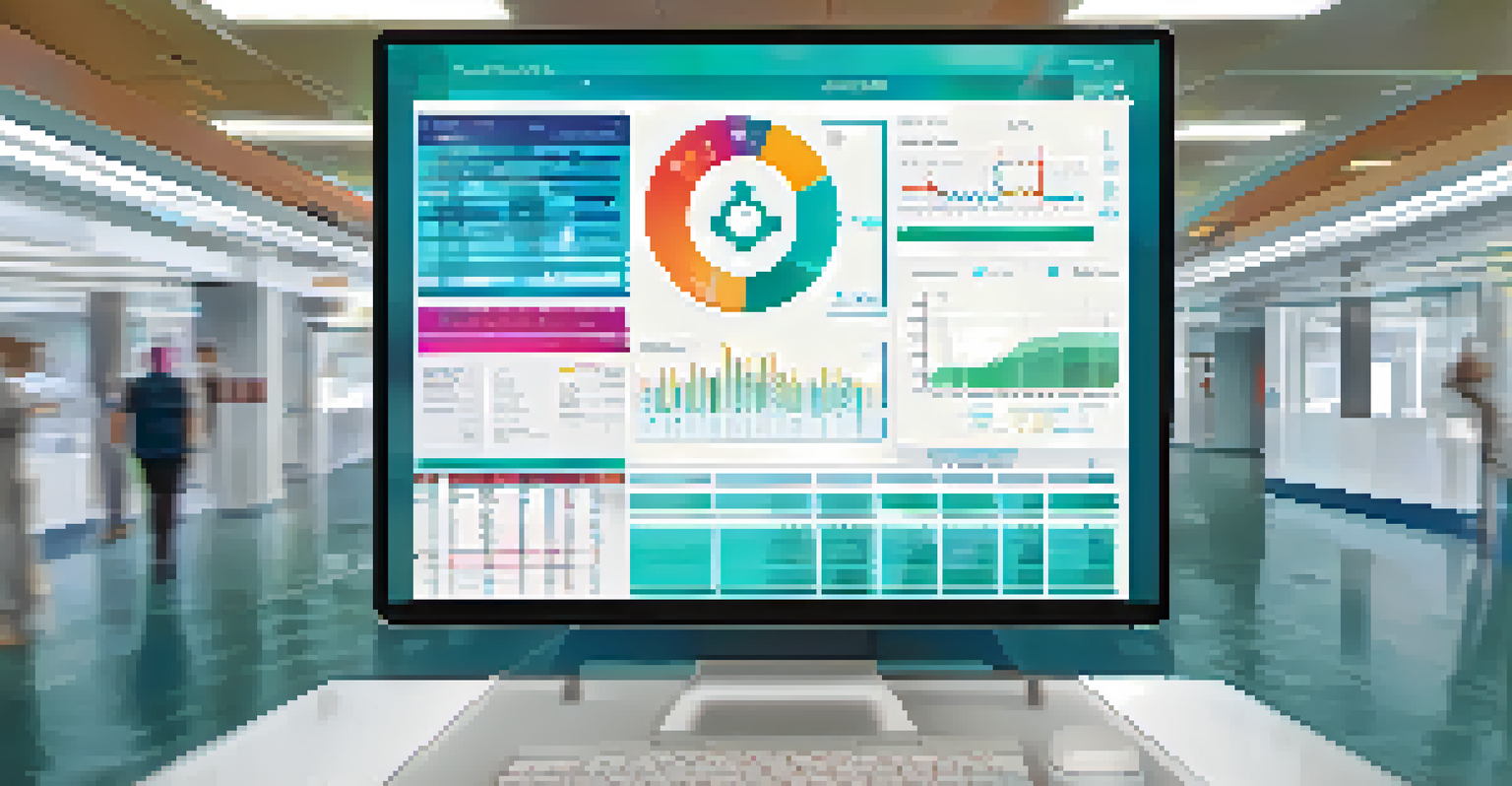The Cost Benefits of Switching to Digital Health Records

Understanding Digital Health Records and Their Importance
Digital health records, often referred to as Electronic Health Records (EHRs), are a modern approach to managing patient information. They replace traditional paper records, allowing healthcare providers to store and access patient data electronically. This transition is crucial as it streamlines processes and enhances communication among healthcare teams.
The greatest benefit of digital health records is their ability to improve the quality and efficiency of patient care.
The importance of EHRs lies not just in convenience, but in the ability to improve patient care. With instant access to a patient's medical history, doctors can make informed decisions quickly. This can lead to better diagnosis and treatment plans, ultimately improving health outcomes.
Moreover, digital records contribute to a more efficient healthcare system overall. By reducing the reliance on paper, EHRs help minimize errors and duplicate testing, ensuring that healthcare providers can deliver timely and accurate care.
Cost Savings in Administrative Tasks
One of the most significant cost benefits of switching to digital health records is the reduction in administrative tasks. With digital systems in place, healthcare providers can automate various processes such as billing, scheduling, and record-keeping. This automation not only saves time but also reduces labor costs associated with manual data entry.

Additionally, fewer administrative errors mean less time spent correcting mistakes. For instance, a misplaced paper record can lead to costly delays in treatment. By minimizing these occurrences, EHRs free up staff to focus on patient care rather than paperwork.
EHRs Improve Patient Care Quality
Digital health records enable healthcare providers to access patient information quickly, leading to better diagnosis and treatment plans.
Overall, the efficiency gained through digital records translates directly into financial savings, allowing healthcare facilities to allocate resources more effectively and improve their bottom line.
Enhanced Patient Engagement and Satisfaction
Digital health records can significantly enhance patient engagement and satisfaction, leading to further cost benefits. Patients with access to their records can take a more active role in their healthcare decisions. This empowerment fosters better communication between patients and providers, which can enhance trust and satisfaction.
Electronic health records are the cornerstone of modern healthcare, enabling better communication, data accuracy, and patient engagement.
When patients are engaged, they are more likely to follow treatment plans and attend appointments, which ultimately leads to better health outcomes. Improved health outcomes reduce the need for expensive interventions down the line, saving both patients and healthcare systems money.
This engagement also allows for easier access to educational resources and health reminders, further promoting proactive health management and reducing overall healthcare costs.
Reducing Overhead Costs with Digital Solutions
Transitioning to digital health records can significantly reduce overhead costs for healthcare facilities. For instance, the need for physical storage space for paper files diminishes, which can lead to substantial savings in real estate and storage costs. This is particularly beneficial for larger practices that manage vast amounts of patient data.
Furthermore, digital solutions often come with integrated tools that can streamline billing and insurance processes. By automating these functions, practices can reduce the time and resources spent on claims processing and follow-ups, leading to quicker reimbursements.
Cost Savings Through Automation
Switching to digital health records reduces administrative tasks and errors, resulting in significant cost savings for healthcare facilities.
In a nutshell, reducing overhead costs allows healthcare facilities to invest more in patient care and technology, enhancing overall service delivery.
Improving Data Accuracy and Security
One of the key advantages of digital health records is the improved accuracy and security of patient data. Electronic records are less prone to human error compared to handwritten notes, which can be difficult to read or may get lost. This accuracy is crucial for ensuring that patients receive the correct treatments without unnecessary delays.
Additionally, digital health records offer enhanced security measures that protect sensitive patient information. With built-in encryption and access controls, healthcare providers can safeguard against unauthorized access and data breaches, which are increasingly important in today’s digital age.
By improving data accuracy and security, EHRs not only protect patients but also help healthcare facilities avoid costly legal liabilities associated with data mishandling.
Facilitating Better Coordination of Care
Digital health records facilitate better coordination of care among various healthcare providers. For instance, when a patient sees multiple specialists, EHRs ensure that all providers have access to the same up-to-date information. This seamless sharing of data helps create a more unified treatment approach, minimizing the risk of conflicting diagnoses or treatments.
Moreover, coordinated care can lead to fewer duplicate tests and procedures, which not only saves money but also spares patients from unnecessary discomfort and inconvenience. By working together more effectively, healthcare teams can focus on what matters most—enhancing patient health.
Enhanced Coordination of Care
EHRs facilitate seamless information sharing among healthcare providers, leading to better coordinated and unified patient treatment.
In this way, EHRs contribute to a more holistic approach to healthcare, which ultimately leads to improved patient outcomes and cost efficiencies.
Streamlining Reporting and Compliance
Switching to digital health records streamlines the reporting process for healthcare facilities. EHRs can automatically generate reports required for compliance with healthcare regulations, which can often be a tedious and time-consuming task. This automation not only saves time but also helps ensure that facilities remain compliant with necessary laws and standards.
Additionally, accurate reporting can lead to better funding opportunities and incentives from government programs focused on improving patient care. Facilities that can demonstrate adherence to quality standards through comprehensive reporting can benefit financially.

In summary, EHRs simplify reporting and compliance, helping healthcare providers focus on patient care rather than getting bogged down by bureaucratic hurdles.
The Future of Healthcare with Digital Records
As we look to the future, the benefits of switching to digital health records will only continue to expand. The integration of artificial intelligence and data analytics into EHR systems holds the potential for even greater efficiencies and insights into patient care. By harnessing these technologies, healthcare providers can make data-driven decisions that enhance patient outcomes.
Moreover, as telehealth and remote patient monitoring become more prevalent, digital records will play an integral role in supporting these services. EHRs will ensure that patient information is readily available, regardless of where care is delivered, fostering continuity and quality of care.
Ultimately, the shift to digital health records is not just a trend; it is a necessary evolution in healthcare that promises to improve both cost efficiencies and patient experiences for years to come.